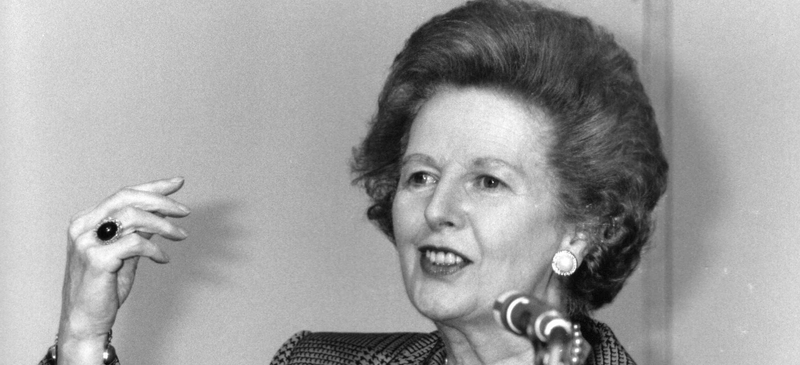
Thatcher's legacy to Europe
Margaret Thatcher became a totem for Britain's eurosceptics. And it is true that in her final years in office – and even more after she left it – she became virulently eurosceptic. Nevertheless in the mid-1980s she made a positive contribution to the EU, working with three other strong leaders – France's Francois Mitterrand, Germany's Helmut Kohl and the European Commission's Jacques Delors.
Her first significant impact on the EU – wielding her handbag to demand Britain's money back in budget negotiations – looked like mere tub-thumping nationalism. But she was right to demand Britain's budget rebate. Without it, the EU budget would have been ludicrously unfair to Britain and the arguments over its contribution would have gone on for ever. The resolution of the problem in 1984 allowed the UK to take a more positive attitude to the EU, which it did for several years, and it gave Delors the space to relaunch the EU around the single market.
Thatcher sent the excellent Lord Arthur Cockfield to Brussels as single market commissioner. He and Delors, with Thatcher's support, put together the 'white book' of 300-odd single market measures. Thatcher then helped the EU to realise those plans by approving the Single European Act. This removed national vetoes on single market rules, which allowed most of the single market programme to be implemented and the EU to regain momentum.
Only in 1988 did Thatcher turn against the EU, because Delors pushed for a social dimension to EU policy, and for monetary union, both of which were anathema to her. After losing office in 1990 – partly because her hostility to a single currency annoyed some senior ministers – her attitudes towards the EU hardened. She became the mentor of a generation of young Conservatives who believe that Britain's future lies in the 'Anglosphere' rather than the EU. To the extent that she fostered the emergence of an increasingly EU-phobic Conservative right-wing, she damaged Britain's relationship with the EU and thus the Union itself.
But Thatcher was far-sighted on some issues. Her 1988 Bruges speech argued that the EU should include Central European states that were then under the sway of Communism. No other leader saw so far ahead at that time. Was she also right to oppose the creation of the euro? As Zhou Enlai said of the French Revolution, it is too early to judge the consequences of that event.
This was written for the World Economic Forum ForumBlog
